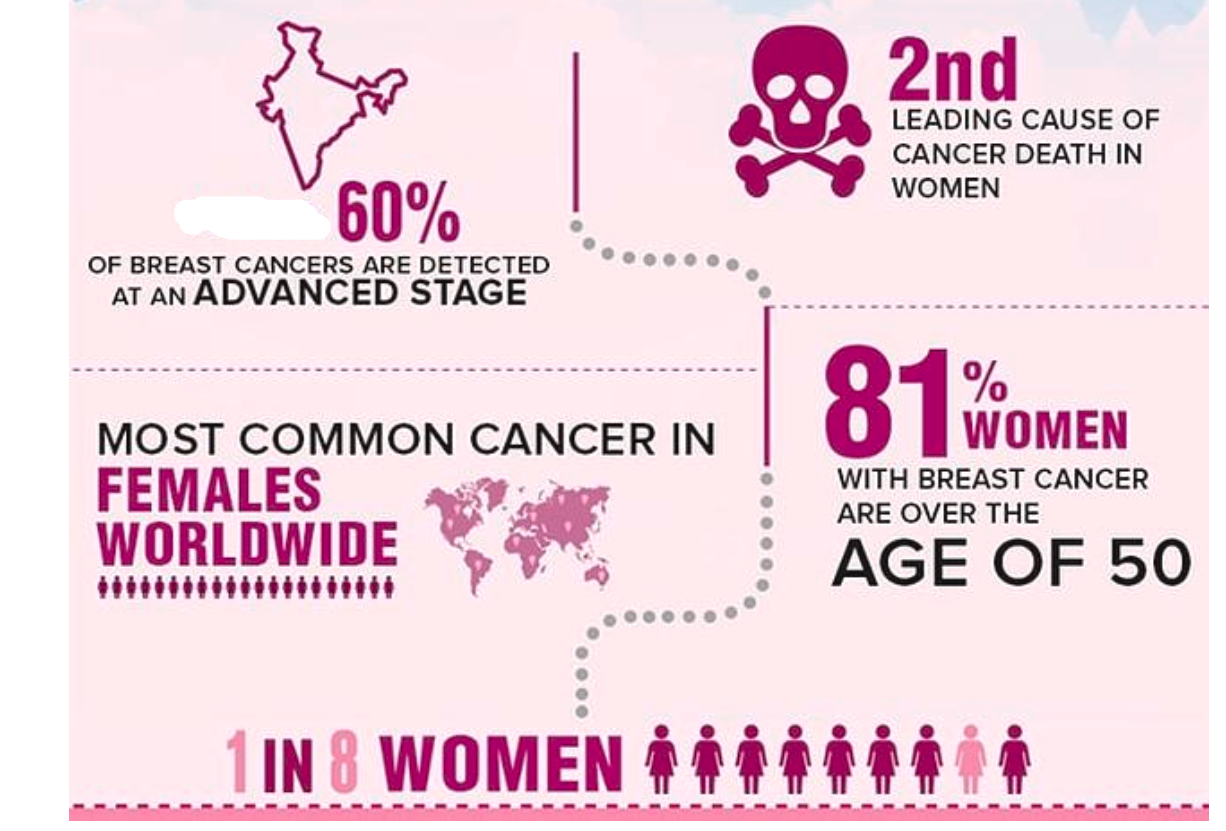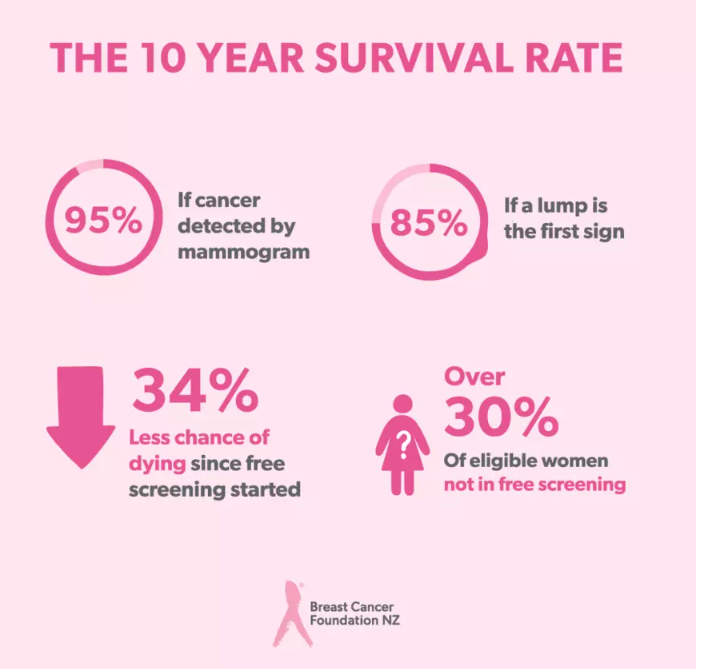facts about breast cancer
What is breast cancer?
Breast cancer is the uncontrolled growth of abnormal cells in one of several areas of the breast, including the ducts that carry milk to the nipple, lobules (glands that produce milk), and nonglandular tissue. Sometimes breast cancer stays in the tissue in which it began. But it can move into nearby tissue and lymph nodes.

Signs of breast cancer include:
- a lump or thickening in the breast or skin under the arm
- a clear or bloody discharge from the nipple
- crusting or scaling of the nipple
- an inverted nipple
- redness or swelling of the breast
- dimpling on the breast skin resembling the texture of an orange’s skin
- subtle changes in the position of the breast, such as one being higher than the other
- a sore or ulcer on the breast that does not heal
How common is breast cancer?
Breast cancer accounts for 12.5% of all new annual cancer cases worldwide, making it the most common cancer in the world.
- About 13% (about 1 in 8) of U.S. women are going to develop invasive breast cancer in the course of their life.
- In 2023, an estimated 297,790 new cases of invasive breast cancer are expected to be diagnosed in U.S. women, along with 55,720 new cases of DCIS.
- In 2023, an estimated 2,800 new cases of invasive breast cancer are expected to be diagnosed in men. A man’s lifetime risk of breast cancer is about 1 in 833.
- There are currently more than 4 million women with a history of breast cancer in the United States. This includes women currently being treated and women who have finished treatment.
- Breast cancer is the most commonly diagnosed cancer among U.S. women. About 30% of all newly diagnosed cancers in women each year are breast cancer.

Double the risk
A woman’s risk of breast cancer nearly doubles if she has a first-degree relative (mother, sister, daughter) who has been diagnosed with breast cancer. Approximately 15% of women who get breast cancer have a family member diagnosed with it.
Links to known gene mutations
About 5% to 10% of breast cancers can be linked to known gene mutations inherited from one’s mother or father. Mutations in the BRCA1 and BRCA2 genes are the most common.
Lifetime risk
On average, women with a BRCA1 mutation have up to a 72% lifetime risk of developing breast cancer. Women with a BRCA2 mutation have up to a 69% risk. Breast cancer that is positive for the BRCA1 or BRCA2 mutations tends to develop more often in younger women.
Ovarian cancer risk
An increased ovarian cancer risk is also associated with these genetic mutations. In men, BRCA2 mutations are associated with a lifetime breast cancer risk of about 6.8%; BRCA1 mutations are a less frequent cause of breast cancer in men.
Sex and getting older
The most significant risk factors for breast cancer are being a woman and getting older. If you’re trans or non-binary, it’s essential that you speak with your doctor about your personal risk level so you can make sure to get screened as often as makes sense for you.
Differences in breast cancer statistics by race and ethnicity
There are persistent disparities in breast cancer incidence and death rates:
- Black women are more likely to die from breast cancer than women of any other racial or ethnic group. Experts believe that it’s partially because about 1 in 5 Black women is diagnosed with triple-negative breast cancer, more than any other racial or ethnic group.
- Breast cancer is the leading cause of cancer-related death in the United States for Black and Hispanic women.
- Breast cancer is the second-leading cause of cancer-related death in the United States, following lung cancer, for Asian and Pacific Islander women, American Indian and Alaska Native women, and white women.
- Ashkenazi Jewish women have a higher risk of breast cancer because of a higher rate of BRCA mutations
References:
- https://www.health.harvard.edu/topics/breast-cancer#breast-cancer
- https://www.breastcancer.org/facts-statistics
- https://www.breastcancerfoundation.org.nz/breast-awareness/breast-cancer-facts/breast-cancer-in-nz
- https://goodkret.live/product_details/30945683.html



